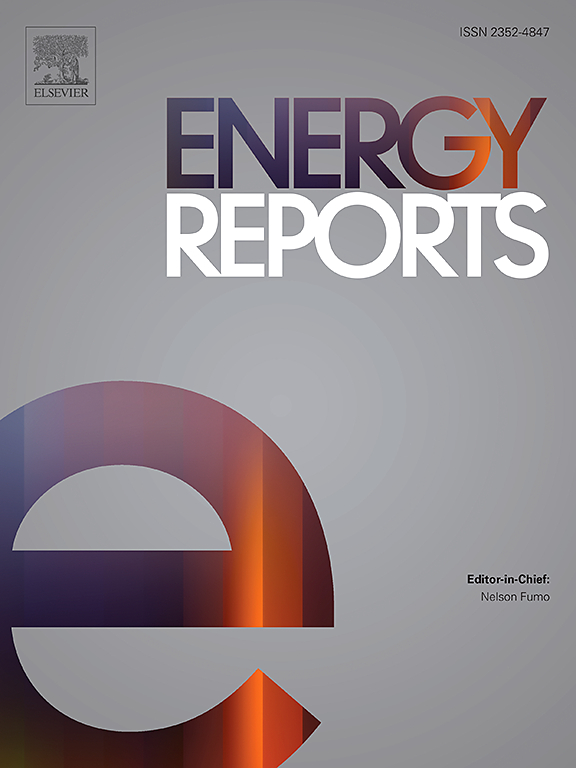Enhanced wireless power transfer for electric vehicles: A 7.2 kW ANN-based MPPT approach with LCC-LCC compensation topology
IF 5.1
3区 工程技术
Q2 ENERGY & FUELS
引用次数: 0
Abstract
Optimizing electric vehicle charging via wireless power transfer is achievable through various control strategies. One effective method involves integrating an Artificial Neural Network based Maximum Power Point Tracking controller with a double-sided LCC compensation topology. This system, designed for a 7.2 kW inductive power transfer operating at 80 kHz, harnesses solar energy as its primary input. The ANN-based MPPT controller is trained to establish the optimal duty cycle for the DC-DC converter. It accomplishes this by learning the intricate relationship between photovoltaic voltage, current, and the maximum power point. This approach ensures robust MPP tracking performance even in diverse environmental conditions, including partial shading and noise. Furthermore, the double-sided LCC compensation network significantly boosts the system's power transfer capability and overall efficiency. The proposed system was meticulously modeled and simulated using MATLAB/Simulink. Simulation outcomes confirm that the combined ANN-based MPPT controller and double-sided LCC compensation deliver superior power transfer efficiency and enhanced output performance when compared to conventional WPT systems used for EV charging.
基于LCC-LCC补偿拓扑的7.2 kW ann MPPT方法
通过多种控制策略,可以实现电动汽车无线充电优化。一种有效的方法是将基于人工神经网络的最大功率点跟踪控制器与双面LCC补偿拓扑相结合。该系统设计用于7.2 kW感应功率传输,工作频率为80 kHz,利用太阳能作为主要输入。训练基于人工神经网络的MPPT控制器来建立DC-DC变换器的最优占空比。它通过学习光伏电压、电流和最大功率点之间的复杂关系来实现这一点。这种方法即使在不同的环境条件下,包括部分阴影和噪声,也能确保MPP的跟踪性能。此外,双面LCC补偿网络显著提高了系统的电力传输能力和整体效率。利用MATLAB/Simulink对所提出的系统进行了细致的建模和仿真。仿真结果证实,与用于电动汽车充电的传统WPT系统相比,基于人工神经网络的MPPT控制器和双面LCC补偿的组合具有更高的功率传输效率和输出性能。
本文章由计算机程序翻译,如有差异,请以英文原文为准。
求助全文
约1分钟内获得全文
求助全文
来源期刊

Energy Reports
Energy-General Energy
CiteScore
8.20
自引率
13.50%
发文量
2608
审稿时长
38 days
期刊介绍:
Energy Reports is a new online multidisciplinary open access journal which focuses on publishing new research in the area of Energy with a rapid review and publication time. Energy Reports will be open to direct submissions and also to submissions from other Elsevier Energy journals, whose Editors have determined that Energy Reports would be a better fit.
 求助内容:
求助内容: 应助结果提醒方式:
应助结果提醒方式:


